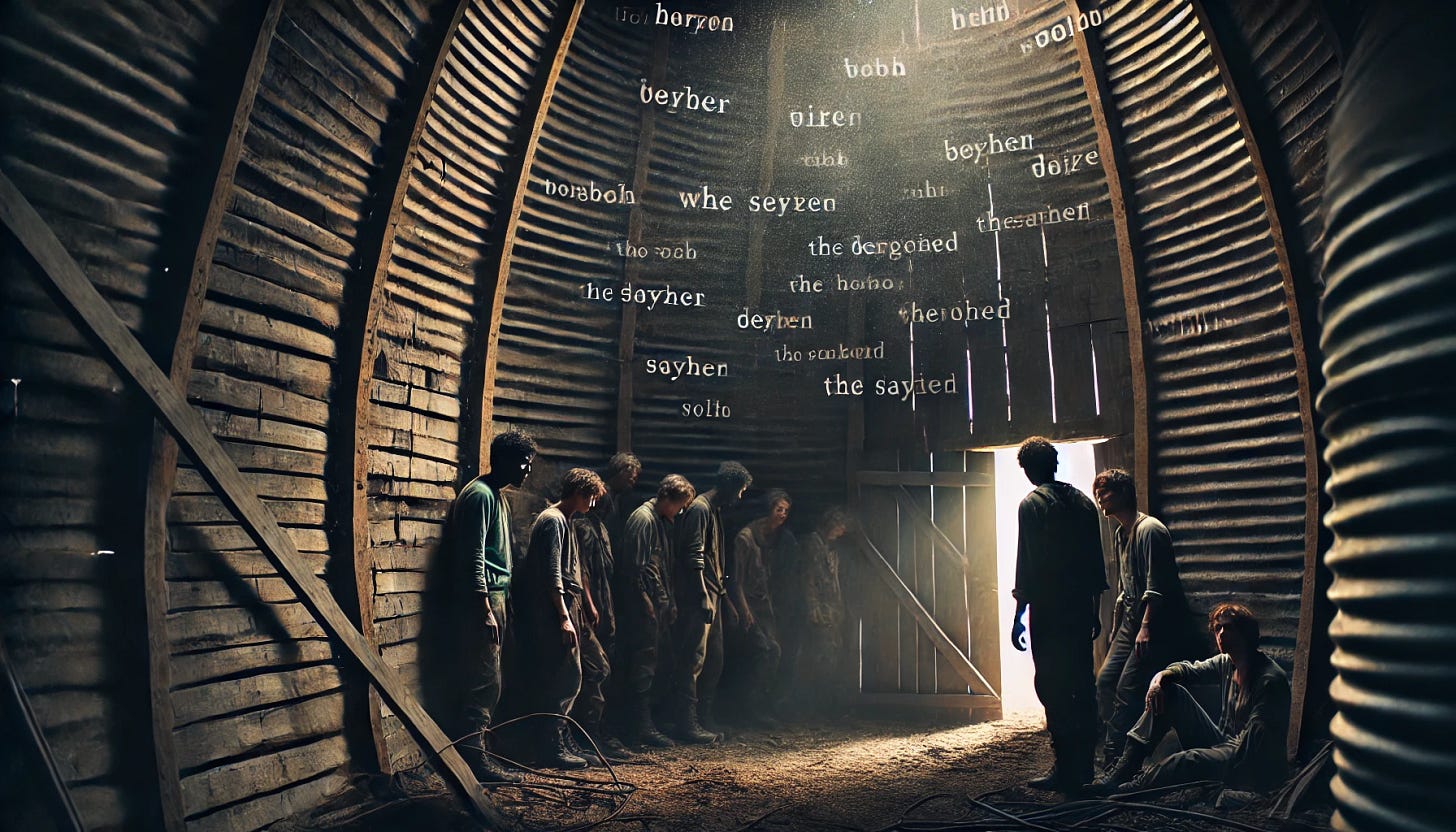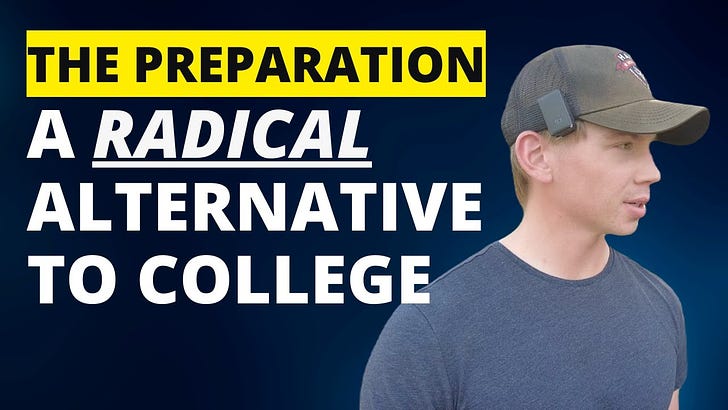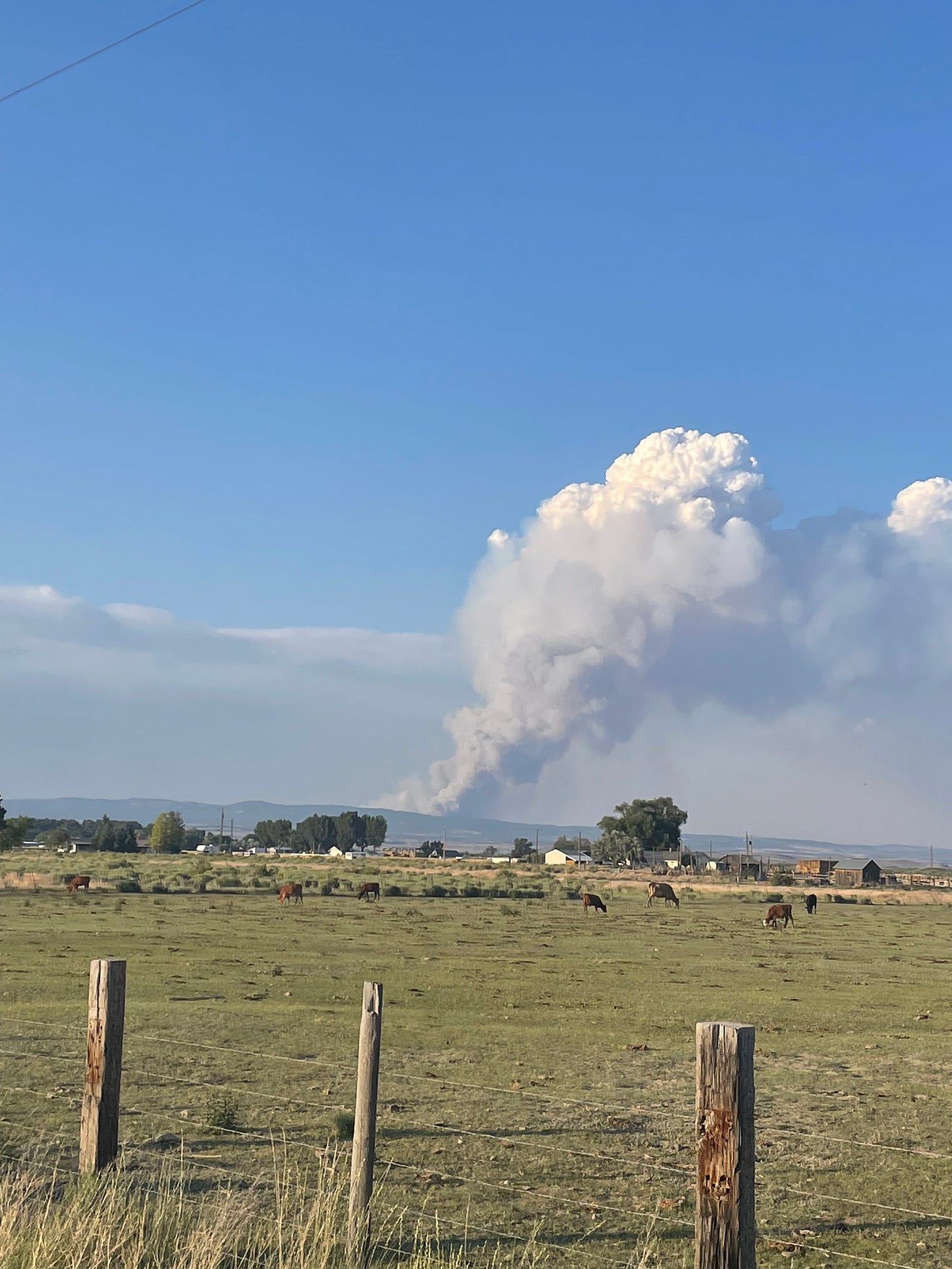You can travel the world, gain a vast network of interesting people, and encounter wild opportunities. And that’s not all, you can gain skills from that network that’ll serve you for a lifetime…All of this can be done in less time than most people spend getting a Bachelor’s degree.
The “college experience” is about the social experiences you have and friends you acquire. Mostly, it’s about short-term fun, but, especially among the more ambitious, there is the hope that the network they build will serve them in the future.
But, with the decline of education and the actual utility of a degree becoming uncertain at the least, there’s little chance that you can build the kind of network you want.
So, the question is, what exactly is the problem and where can you find the solution?
The Silo
Millions are checking in each year - parties, drinking, entertainment, little responsibility - like a resort in Cancun, they’ve got it all. You can watch four years of your life go by and hardly notice it…
From high school to college it was like stepping into another world.
The only thing that remained the same was that danger, responsibility, true difficulties, and real life experiences were still kept away from you like a child.
You’re trapped in a silo that keeps you from seeing the world as it is.
You know that after those four years you will have to face the real world, so you put in some effort to get a degree, which you were told was a massive safety net that would serve you for the rest of your life. Your equally ignorant peers encouraged you every step of the way thinking that you were all headed toward an easy life.
But, guess who’s not at the resort with them?
The wise and interesting people who make things happen in the world. The crucial knowledge and skills they have aren’t passed on. They go overlooked and so does their wisdom.
All of a sudden the resort says, “Okay, looks like you’re stay is up. Thank you for staying with us!” Now they have to face the world as it really is and their peers are equally unsure of what to do or where to go.
Like a babe in the woods, they are cast into the real world and forced to figure things out from scratch.
Worse yet, they only have their equally ignorant peers to try to help them on their feet. The keepers of wisdom - those who have lived the majority of their lives - are off doing their own thing. Or, if they find an eager student, they are teaching the people that never stepped foot in the silo in the first place, but instead sought to build skills on their own path.
The one thing they thought their degree guaranteed - a job - may or may not have actually manifested. As of recent, it seems the latter is more common:
Over the past three years, many of the Gen Zers who saw a college degree as a ticket to a job have found themselves unemployed after graduation. While a cooling job market has made it harder for Americans of all ages to find work, young college grads are among the groups being hit the hardest.
This isn't typical. Between 1990 and 2013, this group's jobless rate was never higher than the overall unemployment rate.
However, according to data from the Federal Reserve Bank of New York, the unemployment rate of recent college graduates between the ages of 22 and 27 — the red line in the below graph — has been higher than the overall US unemployment rate every month since January 2021.
This means young college grads have been more likely to be unemployed than the broader population, even as the job market has returned to a more normal post-pandemic state over the past two years.
It's largely due to bad luck: While older workers locked in jobs during the hiring spree of the Great Resignation, the youngest workers are entering the labor market at a time when hiring has slowed significantly, especially for jobs that require a college degree.
- Business Insider, Gen Z college grads are bearing the brunt of today's tricky job market
So, they find themselves navigating a ship in the sea with no safe harbor in sight. Except, they don’t even have the skills to run the ship…
No skills, few opportunities, and no one to show them the ropes.
From that first step out of the suffocating silo and into the real world, their reality was shattered. It turns out that getting a degree and a job, which was echoed as the key to success by their peers, wasn’t actually the ticket to a bright future they thought it would be.
Those who chose to step out into the real world and use those 4 years of time to learn as much as they could found greater success...
Their area of experience was vast, continuously expanding, and valuable to the people around them. The confining nature of specialization in a particular field wasn’t their way and, because of it, they accrued a number of benefits:
A vast number of experiences
Skills that could aid them wherever they go
Unique and unexpected opportunities
And, they acquire valuable and interesting friends and mentors from providing value or proving themselves to be ambitious people seeking to become more skilled.
Why would you choose the resort-like silo over that?
We’ve spoken about the lack of economic opportunity in college, taking on debt, and real cost of college in the past. Yet, something that needs more attention is the lack of true (and valuable) connections you can acquire in college.
There simply is little opportunity to learn or grow when you’re trapped in a very small world in which everyone is pursuing the same (or similar) paths as you. With no wisdom from older individuals or real life experience, you’re forced to start at the starting line like everyone else.
That isn’t what you want.
To get ahead, you need to cultivate a large network of people who can help you win on your own terms.
How to do it?
Building the Rolodex
You shouldn’t end up in a silo in the first place. It doesn’t allow you to build a vast number of skills, go unique places, or meet wise people.
Fortunately, there is a path outside of the silo of college…
For over a year now I’ve been lucky to be the beta tester for a program designed by my father and Doug Casey. We like to call it The Preparation. I’ve spoken about it many times here, so if you want to know more about it, you can check out this video:
To put it simply, the program was designed as an alternative to college, with the idea that any young man who goes through our program can become confident, competent, and dangerous through seeking to learn valuable skills.
This past year and a half has proven to me that the program (and its outcomes) isn’t just a theory. Without The Preparation (and the help of wise people along the way) I would have been lost.
One of the best things I’ve gotten out of my time in The Preparation is the people I’ve met from simply putting myself out there as someone who is eager to learn…
One of my readers reached out to me to offer that I go to his ranch in Colorado and learn horse/mule packing. It’s a niche skill, and few people possess it. So, when I left Uruguay and went back to Colorado, I took him up on his offer, drove to his ranch, and spent a few days learning foundational packing techniques.
Not only did I get to learn a skill, but I had the opportunity to meet someone rare. This reader was a professional meat cutter by 16, started multiple businesses, and shifted gears to become a hunting guide in Africa - just to name a few things. He had the life experience of 15 men and, for that alone, it was good to meet him.
Another man had heard about my work in The Preparation from my father and decided on his own accord to check out my Substack page. Later on, he reached out to me with an offer. He said that I could head down to Puerto Rico to learn acupuncture from him and potentially sail the Caribbean.
That’s not all…
After completing EMT school an entrepreneur/paramedic ended up offering me a job which involved working on wildfires. I pursued the path and spent 41 total days on fires in 2024.
Here’s what came out of those examples: Became a Type 2 firefighter, took a rope rescue course, earned money working on fires, learned navigation skills, improved my social skills, improved my horsemanship, learned foundational mule/horse packing skills, and came in close contact with highly impressive men.
Those are the sort of experiences that you can have when you say, “Here I am, and here’s what I’m doing.” If it’s impressive then people will be more than happy to help you along your path. You may not learn packing in the Colorado mountains, but other wild and unexpected things will be offered to you…things you never could have imagined.
All of these men mentioned are several years older than I am, meaning that they have garnered wisdom from years of acting in the real world. Better yet, they are reliable, interesting, honest, and hard working.
So, that’s what makes maintaining the relationships with them worth it. They are good men.
All of the bonuses - wild experiences, strange stories, job offers, new skills - are not expected and, because of that, they are warmly welcomed. Yet, again, the relationship and its bonuses come from people first recognizing that you are an ambitious individual. If you disregard the silo and strike out on your own you immediately mark yourself as an uncommon person.
Those looking for people with the “give a shit factor” will be drawn to you.
Wise, interesting, and skilled people are always looking for someone to pass their skills and knowledge on to. Ben Franklin, Steve Jobs, Socrates, Michelangelo - all of these men had younger “apprentices” who seemed like they were going places and those impressive men wanted to see them succeed.
Make the Decision
You’ve got a choice…
You can choose the resort, learn few skills, associate with unproven individuals, and narrow your range of future opportunity by taking the “safe” path of college.
Or
You can use The Preparation as your compass, become competent in a wide set of skills, accumulate a network of good and interesting people, and expand your range of future opportunity to the point that things never before imagined will come to you.
What do you say?
-Maxim Benjamin Smith









Do people still use Rolodex systems? Seems archaic.
Your conclusion is certainly correct, that being in a sheltered existence isn't useful to gaining real-world experience. There are things that one can learn in college which are somewhat less available in other contexts, such as astrophysics, advanced chemistry, nuclear engineering, the mathematics of operations research. People can train themselves on these topics, and if you would rather go in for the dismal rigour of military training you might be allowed to pursue your interests in some of these areas. So if you aren't looking for bleeding edge scientific, mathematical, or technical training, academia is probably not a good choice.
At the same time, it has been my direct personal experience that you can make opportunities for yourself no matter where you are. Education is possible in any context, meeting people is possible in any context. During my college years I was invited to supper with Ed Koch, Rupert Murdoch, Jascha Heifetz, then-head of the Ford Foundation Franklin Thomas, and a number of other luminaries based in New York because I had been selected as a John Jay scholar. I also met Abby Hoffman who came to our campus to speak. In grad school, our dean made sure we met business leaders in various industries during our weekly "dean's seminar" including Joe Allen of Space Industries, Ivan Boesky of the eponymous arbitrage company, and dozens of others.
Robert Heinlein once wrote that you can even get a quality education in a public school, as long as you are willing to do extra reading and independent study.
Bravo, kid! LIVE your life. You only get one. Touch the sky. When you take your last breath you'll know in your heart you were true to yourself. You will be lonely at times, you will be in a minority but the fact is not many can say that.